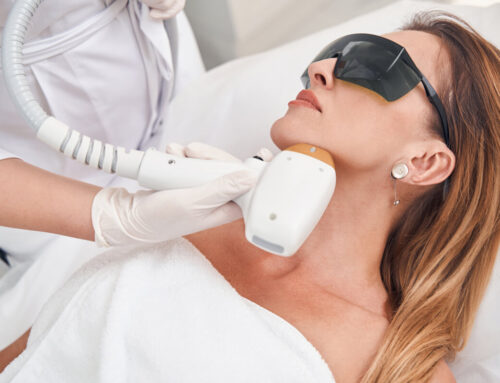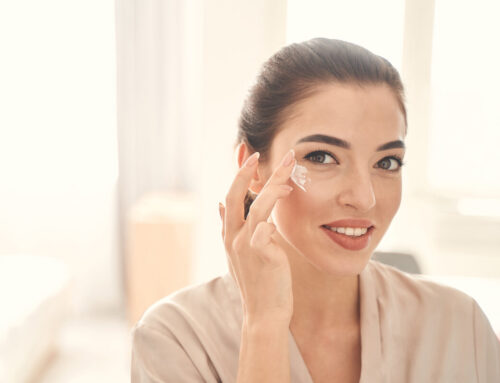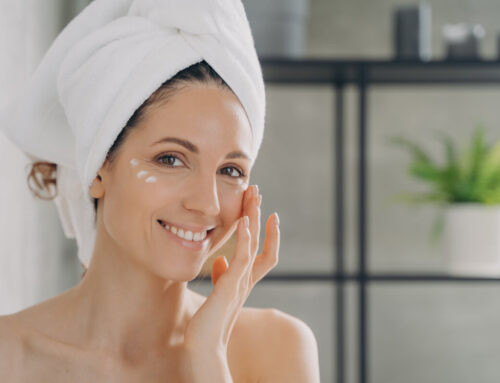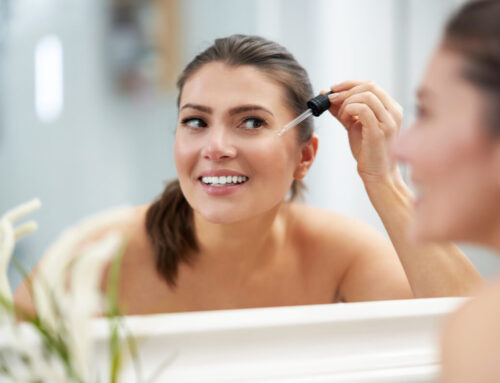The American Academy of Dermatology reports that acne is the most prevalent skin disease in the country. Eighty-five percent of people between the ages of 12 and 24 in the United States have at least some mild acne each year. Several things can mess with your skin and produce acne. The formulation of acne starts with over production of oil by the sebaceous glands, then combines with dead skin cells clogging the pores causing inflammation and infection of the area of the skin. Here are ten of the most common factors that can contribute to acne:
- Hormone
Teenages experience an increase in sebaceous gland size and oil production due to the testosterone surge that occurs during puberty. An overabundance of sebum can weaken the cellular walls of pores, making them more susceptible to bacterial invasion. Acne can also be triggered or made worse by the hormonal shifts that occur during menstruation, pregnancy, and the use of oral contraceptives.
- Genes
Acne has been shown to have a strong hereditary component. If both of your parents suffered acne, your risk of developing the condition is higher.
- Oily Cosmetics
Products used on the face and hair that contain sulfates, mineral oil, coconut and cocoa butter, and silicones can clog pores and lead to acne. To protect yourself, look for sunscreens, moisturizers, and makeup that are non-comedogenic, oil-free, and odorless. Laundry detergent contains harsh chemicals that can aggravate sensitive skin.
- Anxiety and Stress
Psychological and emotional stress directly affect hormones like cortisol and adrenaline, making acne worse. These hormones of stress cause an increase in oil production and pore-clogging testosterone production by the oil glands.
- Drugs
Acne is exacerbated by medications that contain androgens, corticosteroids, or lithium.
- Diet
A diet high in sugar and dairy products can contribute to the production of acne. According to research published in the Journal of the Academy of Nutrition and Dietetics, acne was linked to consumption of dairy, sugar, grains, bread, potatoes, and pasta.
- Popping pimples
You are increasing your risk of a bacterial infection to your skin when you try to manually pop and squeeze a pimple by yourself. By doing so, you can make the content in the pimple get deeper into the skin and further cause swelling and redness. Scarring is also a possible result of this.
- Contact and Friction
Acne can become worse by having contact and friction to the skin. Sweat and bacteria can get trapped on the skin through various objects, including holding cell phones against the ears, wearing hoodies, helmets that are covering the face, tight collars around the neck, and hair bangs covering the forehead.
Acne can be managed and effectively treated with topical and oral medications. Visit us today at Eye Candy VBC to meet your needs.
Can cigarette smoking trigger acne?
According to a British study conducted in 2001, cigarette smoking increases the risk of developing acne and worsens existing acne. However, a research conducted in 2005 failed to find any connection between cigarette smoking and an increase in the incidence of acne. The present state of mind on this issue is captured nicely in a study conducted in 2016. Researchers looked at information about typical acne risk factors, including smoking. They discovered that while smokers seemed to have acne at higher rates, more research is needed before a causal relationship can be made in either regard.
Can alcohol trigger acne?
It has not been confirmed whether alcohol consumption triggers acne. However, it’s true that certain lifestyle choices, such as binge drinking, can hinder the body’s natural capacity to combat inflammation, maintain hormonal balance, and heal, all of which may lead to more frequent breakouts or make acne worse.
Does nicotine cause acne?
Although nicotine alone might not directly cause acne, it has been linked to several issues that can lead to or exacerbate acne. Nicotine can cause negative impacts on skin health, including increased inflammation, immunosuppressive effects that reduce the skin’s ability to fight off dangerous pathogens, and the degradation of collagen (which reduces the skin’s ability to recover and look healthy).
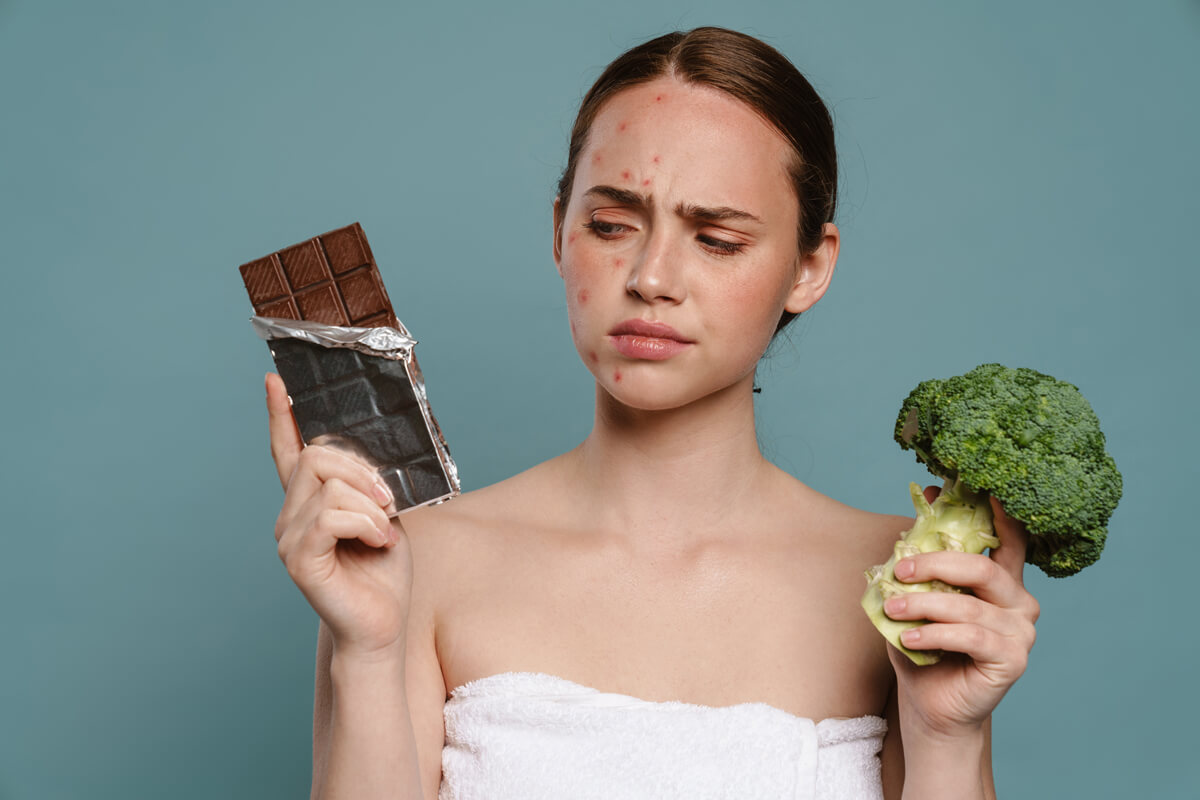
Can creatine trigger acne?
There is no evidence that creatine contributes to acne. When taken correctly in athletes, it can be a better replacement for anabolic steroids, which cause severe acne and other adverse side effects if misused.
Does biotin cause acne?
There is no direct relation between biotin and production of acne. Biotin is essential for healthy hair, nails, and skin at normal levels. Research suggests that although biotin may assist in promoting skin hydration and overall skin health, taking biotin is unnecessary for those without biotin deficiency.
Is there a link between sugar and acne?
The effects of a high-sugar diet on the skin are still up for debate, mainly because studies that aim to answer this question often produce conflicting findings. The most intriguing correlation between diet and skin health is the effect that a high glycemic load (obtained by consuming a lot of sugar and carbohydrate-rich foods) has on the body’s synthesis of hormones, which may contribute to the development of skin problems like acne. Therefore, it’s possible that sugar doesn’t directly cause acne, and a healthy diet that includes sugar shouldn’t have any noticeable effects on the skin. However, a diet high in sweets and a lack of skincare may increase your risk of breakouts.
MEDICAL ADVICE DISCLAIMER: All content in this blog and description including: information, opinions, content, references and links is for informational purposes only. The Author does not provide any medical advice on the Site. Accessing, viewing, reading or otherwise using this content does NOT create a physician-patient relationship between you and its’ author. Providing personal or medical information to the Principal author does not create a physician-patient rela-tionship between you and the Principal author or authors. Nothing contained in this blog or it’s description is intended to establish a physician-patient relationship, to replace the services of a trained physician or health care professional, or otherwise to be a substitute for professional medical advice, diagnosis, or treatment. You should consult a licensed physician or appropriately-credentialed health care worker in your community in all matters relating to your health.


